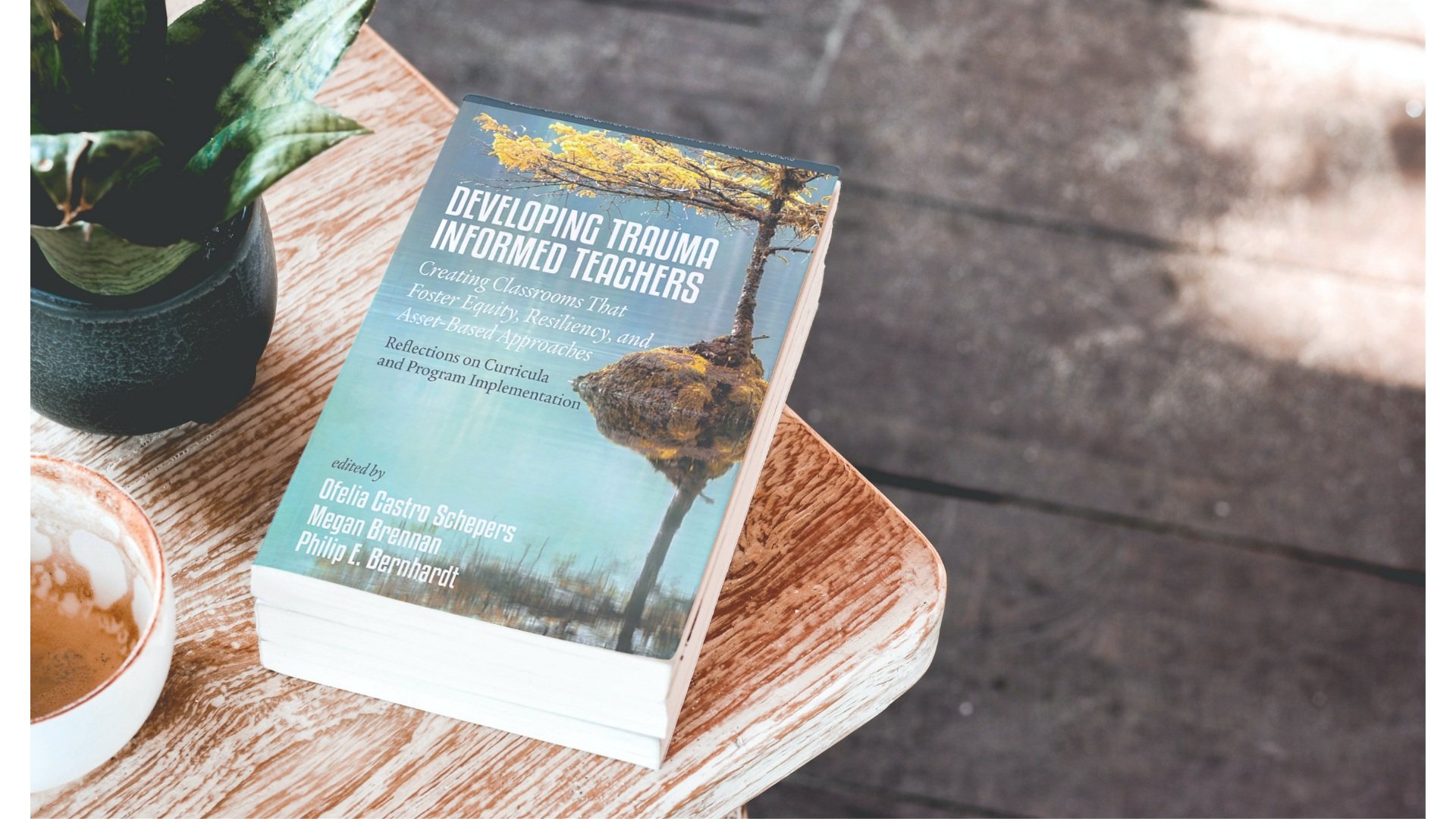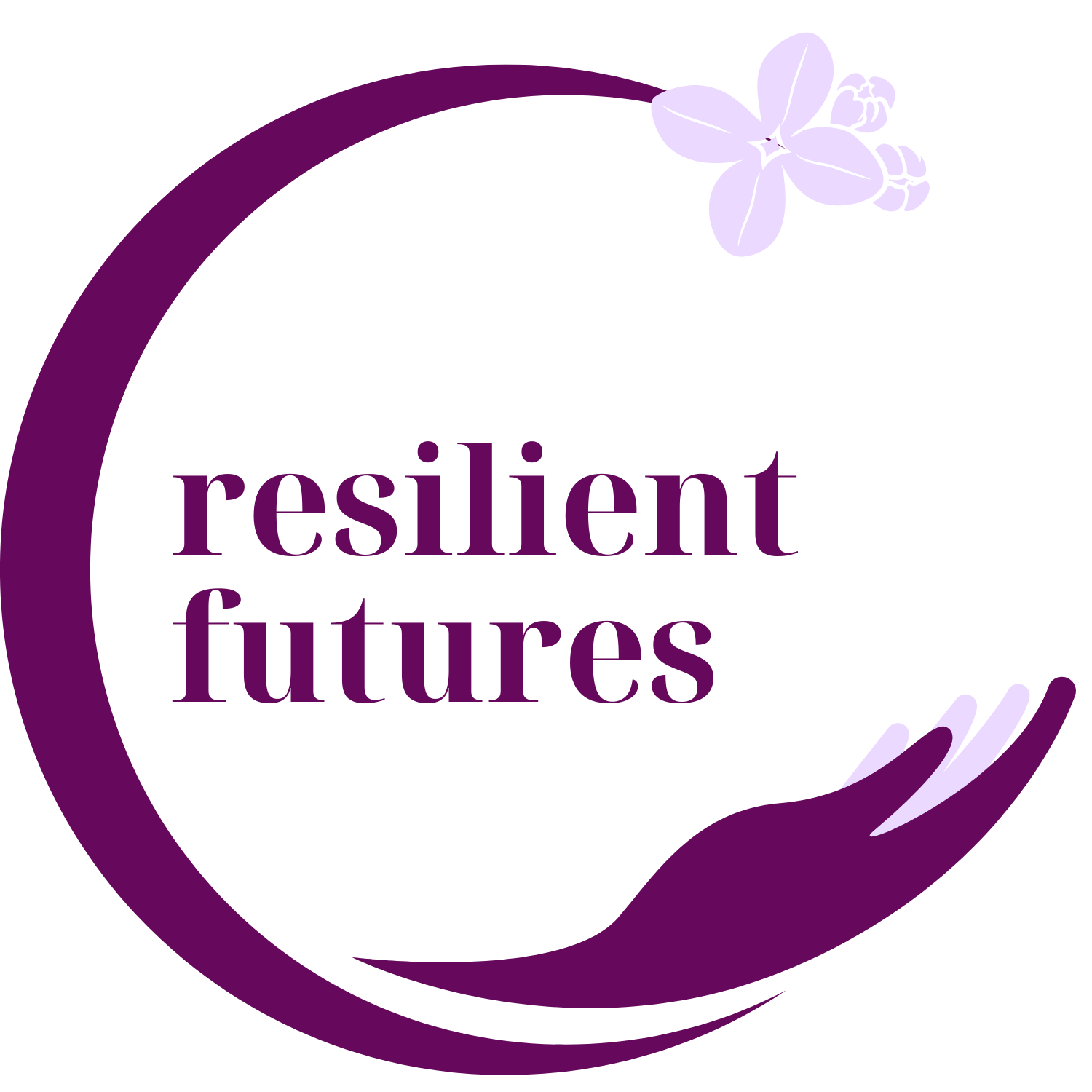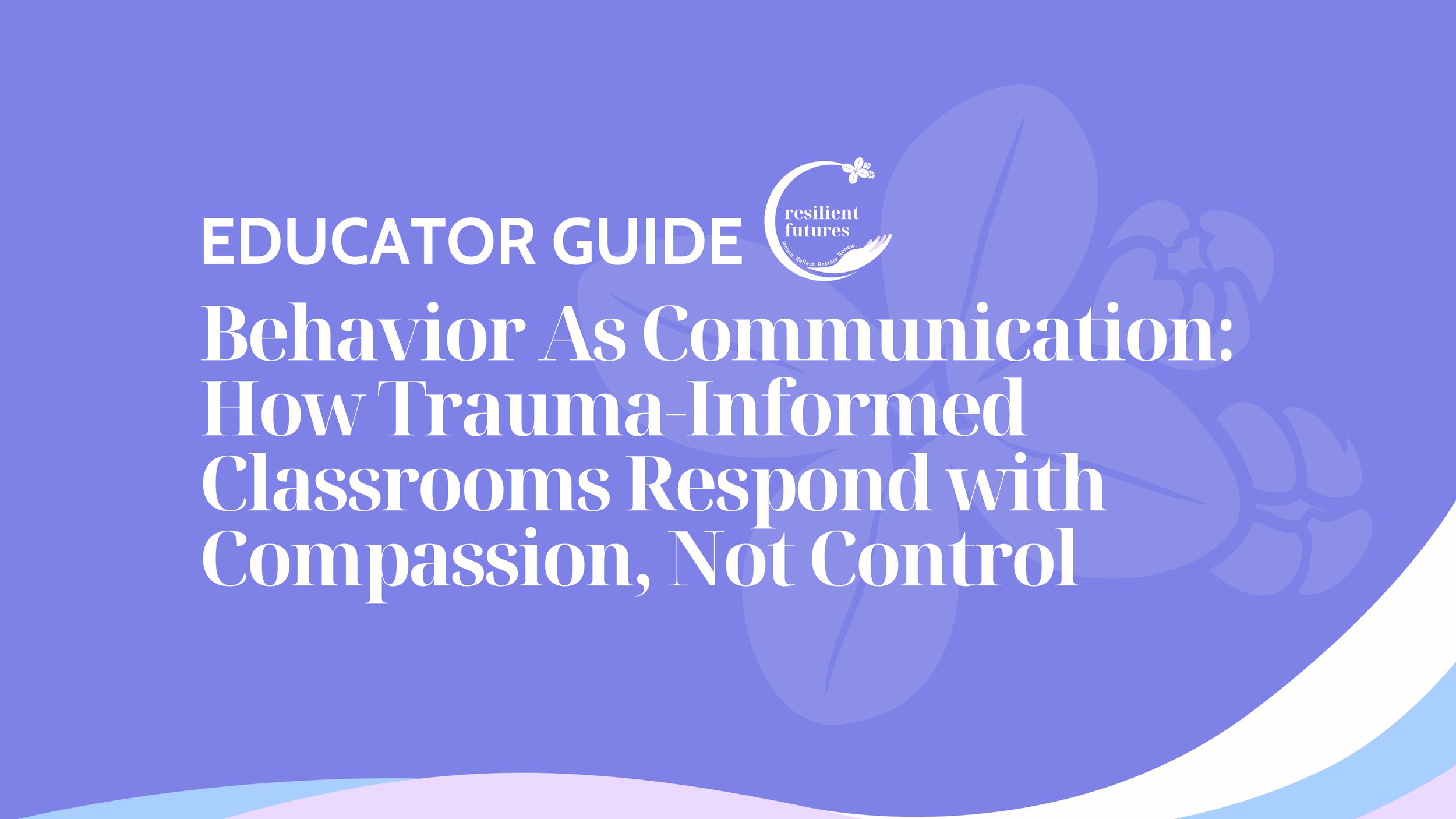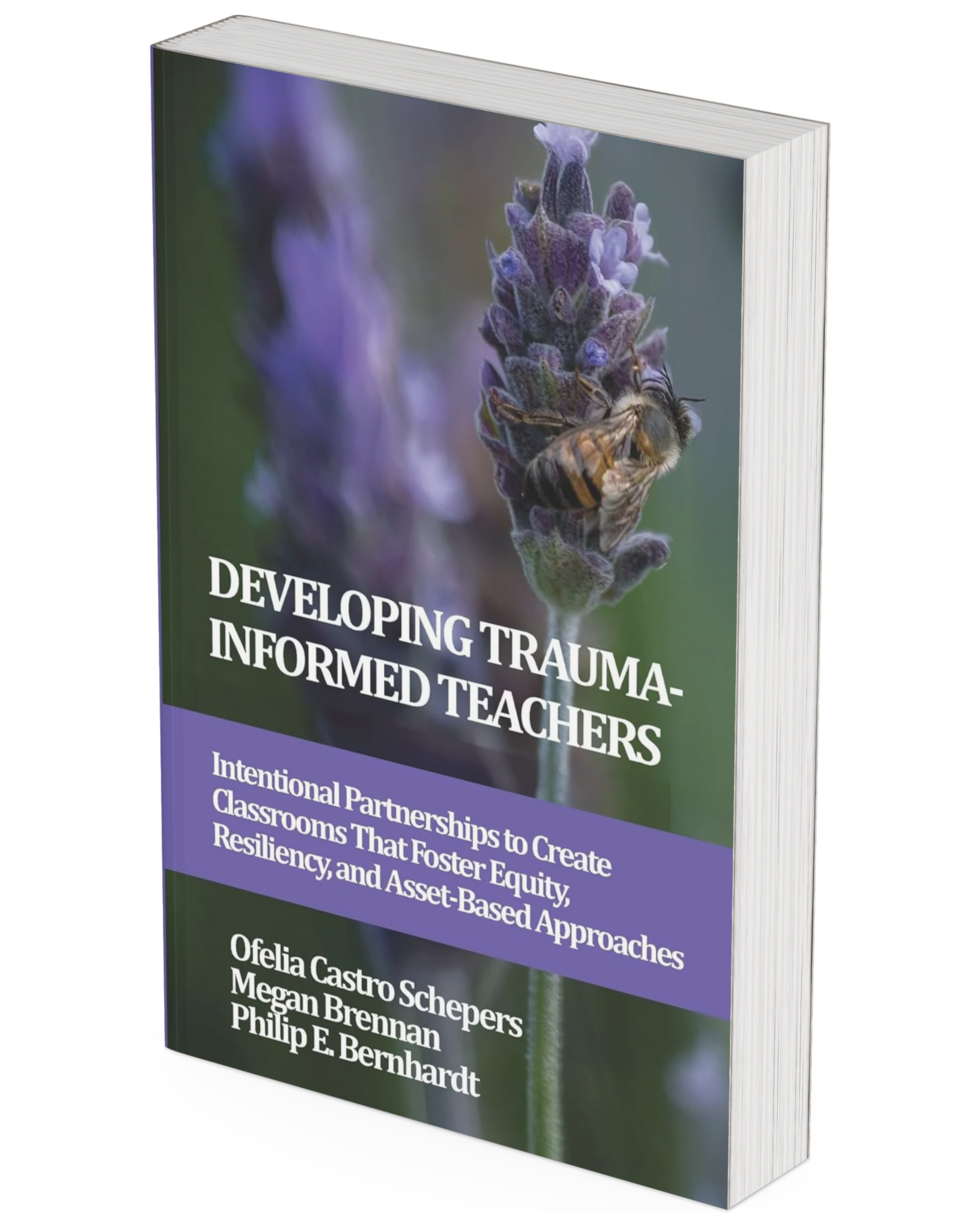
Teaching Children to Feel Their Feelings, Not Just Name Them
Teaching children to name, feel, and tolerate their emotions builds lifelong emotional resilience, strengthens their nervous systems, and prevents the cycles of suppression many adults are still unlearning. This article explores how trauma-informed educators can help the next generation develop emotional wisdom that lasts well into adulthood.
How Food Insecurity Hurts Learning, Belonging, and Becomes Childhood Trauma
When children come to school hungry, it’s not just their stomachs that are empty — it’s their sense of safety and belonging, too. This article explores how food insecurity impacts learning and emotional well-being, why inconsistent access to food is a form of trauma, and what educators can do to create stability and care in their classrooms. As SNAP cuts threaten millions of children, schools have a critical role to play in helping students feel nourished, seen, and safe.
Helping Children Feel Safe to Feel: How Educators Can Support Emotional Expression in Trauma-Affected Students
When children grow up in environments where emotions are dismissed or punished, they learn to hide the most human parts of themselves. Here, we explore how educators can recognize when students come from emotionally unsafe homes and how trauma-informed classroom practices can help them feel seen, heard, and safe to express their feelings. With consistent relationships, reflection, and restorative care, schools can become the spaces where children learn that it’s safe to feel again.
Trauma-Informed Schools: A Pathway to Suicide Prevention, Belonging, and Hope
Youth suicide is the second leading cause of death among young people, yet schools have the power to be life-saving spaces of connection, belonging, and hope. By embracing trauma-informed practices, cultural humility, and restorative approaches, educators can transform classrooms into protective environments where every student feels seen, valued, and supported. This Suicide Prevention Month, Resilient Futures calls on communities to invest in practices that not only strengthen academics but save lives and preserve futures.
Free Download: Creating a “Peace Place” for self-regulation in your classroom
One effective strategy for promoting self-regulation in classrooms of all ages is the creation of a “Peace Place” —a designated space where students can go to decompress, refocus, and regulate their emotions. Get our free downloadable guide to create a Peace Place in your classroom, plus a set of wall posters and printable Peace Place worksheets!
Designing for Connection: A Trauma-Informed Approach to Classroom Setup
This guide helps you reimagine your classroom setup as a trauma-informed, healing-centered space that fosters connection, emotional regulation, and belonging for all students. With practical strategies rooted in Resilient Futures' 4 R’s (Relate, Reflect, Renew, and Restore), you’ll learn how to design zones, calming corners, visual supports, and collaborative layouts that honor neurodiversity and student voice. Whether you’re starting fresh or making small changes, your classroom can become a sanctuary.
Back to School with Intention: A Simple Trauma-Informed Starter Kit for Educators
As you head back to school in a system that’s overburdened and under-resourced, trauma-informed practices can help you create a safer, more connected classroom for every student. This guide offers practical tools to build trust, support emotional regulation, and foster belonging while also protecting your own wellbeing and boundaries. You don’t have to do it all; just start with intention, and let your presence be the practice.
Helping Children Cope with Unexpected Tragedy and Loss: A Trauma‑Informed Guide for Parents, Caregivers, and Educators
Helping children cope with unexpected tragedy and loss requires a trauma-informed approach that prioritizes safety, emotional literacy, and long-term healing. Here we’ll explore how parents, caregivers, and educators can support children through understanding brain and body responses to trauma, fostering resilience with the 4 R’s framework from Resilient Futures: Relate, Reflect, Restore, and Renew. Learn practical strategies for nurturing emotional expression, creating safe environments, and building community connections to promote sustainable healing and growth.
A Guide to Behavior As Communication: How Trauma-Informed Classrooms Respond with Compassion, Not Control
Across the country, educators are facing a rise in student behaviors rooted in emotional distress, trauma, and unmet needs - challenging traditional discipline approaches. At Resilient Futures, we believe that behavior is communication, often signaling pain or dysregulation that students can’t yet verbalize. A trauma-informed lens invites us to respond not with punishment, but with relationship-centered strategies that foster safety, connection, and learning for everyone.
Closing the Year with Care: Trauma-Informed Reflection, Restoration, and Intention-Setting for Educators
As the school year ends, educators deserve space to reflect, regulate, and set intentions for a restorative summer. This article offers trauma-informed guidance rooted in Resilient Futures' 4 R’s: Relate, Reflect, Renew, and Restore, to help you close the year with care and move forward with clarity. Don’t miss the free downloadable packet, filled with journaling prompts, a nervous system check-in, and goal-setting tools to support both you and your students.
Calling all Corporate Leaders: Why companies are investing in Trauma-Informed Workplace Training
In today's rapidly evolving corporate landscape, leaders face unprecedented challenges. From navigating the complexities of mental health to addressing the nuances of DEI, the modern workplace demands a more empathetic and informed approach. Trauma-informed training emerges as a pivotal strategy, not just as a compassionate initiative but as a critical investment in organizational resilience and success.
Supporting Students Through the Summer: Trauma-Informed Summer Packet for Educators
As summer approaches, we know that many students will miss the structure and safety of school. That’s why Resilient Futures created a free downloadable packet with trauma-informed activities, calming tools, and reflection prompts to help students feel supported over the break. It also includes a customizable end-of-year letter template so educators can send each student home with words of encouragement and connection.
Compassion Fatigue vs. Burnout: How Educators Can Recognize & Address Both
Educators give their hearts to students, but what happens when that emotional labor leads to deep exhaustion? This article breaks down the difference between compassion fatigue and burnout, two often-overlooked challenges in today’s schools. Learn how to recognize the signs, respond with trauma-informed strategies, and create a path toward healing and sustainability in your work.
Reframing Discipline: Trauma-Informed Alternatives to Traditional Consequences in Schools
Traditional school discipline isn't just outdated, it’s harmful, often worsening student behavior and disproportionately impacting marginalized youth. We believe trauma-informed, restorative practices can replace punitive measures by addressing the root causes of behavior and fostering emotional growth, trust, and accountability. Here we’re offering research, strategies, and scenario scripts for anyone interested in reimagining discipline as a path to healing rather than punishment.
The Power of Micro-Moments: Small Actions with Big Impact + 20 Micro-Moment Classroom Ideas!
In a world where educators are pulled in every direction, Micro-Moments show how just 30 seconds of intentional connection can build trust, regulate student nervous systems, and foster classroom safety. Grounded in trauma-informed principles, this article offers 20 creative, actionable ways to build relationships without adding to your workload. Download the free guide to get practical scripts and a weekly tracker that help you bring these micro-moments to life.
Teaching Self-Love in the Trauma-Informed Classroom: An Educator Guide
Self-love plays a powerful role in building resilience, self-worth, and identity safety in children. Here we offer practical, trauma-informed strategies for educators to teach self-love in the classroom, and FREE printable classroom worksheets for students of all ages. From fostering self-advocacy to helping kids listen to their bodies and embrace rest, this comprehensive guide will help Educators create a classroom culture that supports emotional growth and lifelong well-being.
How Social Emotional Learning (SEL) Can Reduce School Avoidance and Chronic Absenteeism
Chronic absenteeism has surged in U.S. schools post-pandemic, largely due to trauma, isolation, and unmet mental health needs. Social Emotional Learning (SEL) offers proactive, trauma-informed strategies that foster belonging, emotional regulation, and supportive relationships. All key factors in driving consistent school attendance. By shifting from reactive measures to care-centered practices, educators can help re-engage students and make schools places where young people feel safe enough to show up.
Research Study: Trauma-Informed Practices Shield Against Secondary Traumatic Stress in First-Year Teachers
Resilient Futures is proud to share new research that advances our collective understanding of how trauma-informed practices can support teacher well-being. Co-founder Megan Brennan, alongside several of our Trauma-Informed Partners, co-authored a new peer-reviewed article as part of a research initiative funded by a Spencer Foundation Research Grant. This study, published in Psychology in the Schools - a Research Journal, examines how trauma-informed practices can act as a protective factor against Secondary Traumatic Stress (STS) in first-year teachers.
The Essential Role of Educators of Color in Empowering Students
Educators of color play a vital role in creating trauma-informed, equity-centered classrooms where all students feel seen, valued, and empowered. Their presence not only improves academic outcomes but also fosters cultural humility, belonging, and identity safety. Here we explore the transformative impact of representation in education, and why it matters now more than ever.
April is Child Abuse Prevention Month: Understanding and Preventing Child Abuse
April is National Child Abuse Prevention Month. A time to raise awareness, recognize the signs of abuse, and take action to protect children. This article explores how trauma-informed practices in schools and youth-serving environments can help prevent abuse before it starts. Learn the warning signs, understand cultural and generational nuances, and access resources to support children and families in need.

Developing Trauma-Informed Teachers
An Educational Book Series from Resilient Futures
[July 2022] Co-edited by Resilient Futures founder Megan Brennan, this volume of the series Contemporary Perspectives on Developing Trauma-Informed Teachers provides reflections, examples, and implementation guidance for the innovative and important ways educators develop and implement trauma-informed practices across their programs, instituting broader curricular shifts to incorporate trauma-informed practices.
[January 2023] Co-edited by Resilient Futures founder Megan Brennan, this volume of the series was driven by a deep desire to ensure that teacher candidates are thoughtfully prepared to more fully address students’ needs and create classroom environments that are safe for students and teachers.
Developing Trauma-Informed Teachers: Intentional Partnerships to Create Classrooms That Foster Equity, Resiliency, and Asset-Based Approaches
[May 2025] Co-edited by Resilient Futures founder Megan Brennan, this volume of the series we delves into the heart of educational evolution: Intentional Partnerships to Create Classrooms that Foster Equity, Resiliency, and Asset-Based Approaches.
Childhood Trauma:
An event(s) that a child finds overwhelmingly distressing or emotionally painful, often resulting in lasting mental and physical effects.
Many think of trauma as a single life-changing event, but more commonly trauma manifests as a series of events or patterns of abusive or neglectful behaviors that compound over time.
Understanding Childhood Trauma
In the Press

Give to further our Mission
More than ever, our schools and youth-serving communities are in need of trauma-informed education, training, and resources. Your tax-deductible gift will directly fund our program expansion efforts, enabling us to provide trauma-informed training and resources to a greater number of educators, schools, and youth-serving organizations.
Interested in learning more about our Trauma-Informed Futures© Programming & Services?























